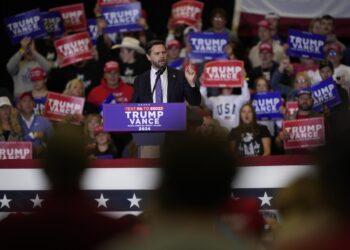,
Beijing (AFP): China publicly confirmed for the first time on Tuesday that it had tested a satellite-destroying weapon, but insisted its space programme was of no threat to the rest of the world. However China's breaking of its silence — 12 days after the event and following intense diplomatic pressure — failed to quell international concerns the event triggered about the Asian giant's rising military power and a potential arms race in space.
Japan said its national security had been threatened and demanded a better explanation from Beijing, while Taiwan warned China's actions had endangered regional peace.
“Regarding having conducted the test, China has already notified other parties,” Chinese foreign ministry spokesman Liu Jianchao told reporters, naming the United States and Japan as nations that had been directly told.
“But China stresses that it has consistently advocated the peaceful development of outer space and it opposes the arming of space and military competition in space.
“China has never, and will never, participate in any form of a space arms race.”
The White House said last week that China had used a missile to destroy an old Chinese weather satellite on January 11, making it the third country after the United States and the former Soviet Union to shoot down an object in space.
The test meant that China could theoretically shoot down spy satellites operated by other nations.
The US, Japan and others had also complained that China had failed to adequately explain why it had gone ahead with the test.
Liu dismissed complaints that China had not been transparent about the issue.
“China has nothing to hide. After the relevant parties expressed their concerns, we made our response quickly,” he said.
“Since many countries have expressed concern, there was a need to explain… on this issue, China has been responsible.”
But Japan said on Tuesday after Liu's announcement that it was not satisfied.
“The destruction of a satellite by a ballistic missile… raises great concerns in our country from the viewpoint of the safe use of outer space, as well as national security,” Chief Cabinet Secretary Yasuhisa Shiozaki said.
The top government spokesman said the Chinese foreign ministry had informed the Japanese embassy in Beijing on Monday that China had conducted “one experiment in space recently.”
“It was insufficient,” Shiozaki said of the notification.
“If transparency is not properly ensured in such a case, it provokes doubts and fears,” he said.
Taiwan said China's actions in developing space weaponry and deploying more ballistic missiles targeting the island were endangering regional peace.
“Should war break out in the Taiwan Strait, China would be able to use its anti-satellite weaponry to attack the military satellites of other countries,” including those of the United States, air force Major General Wang Cheng-hsiao told reporters.
Analysts say Taiwan does not operate its own spy satellites, but relies heavily on US satellites for intelligence information on the Chinese military.
China regards Taiwan as a renegade province that must eventually be reunified with the mainland, by force if necessary.
After destroying satellites in space in the 1980s, the United States and the Soviet Union ended their programmes, largely because of the problem of debris.
But despite US protests against China, President George W. Bush's administration has opposed international calls to end all tests, saying in a policy paper last year the United States had the right to “freedom of action” in space.
Analysts have said Washington is concerned that China's test has shown it is starting to make inroads into the US' virtual supremacy in space, and highlights Beijing's rising military power.
The US Defense Department says China is spending two to three times more on its military than the 35 billion dollars a year it has acknowledged.









